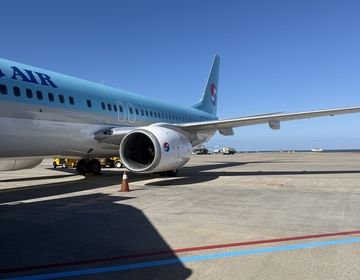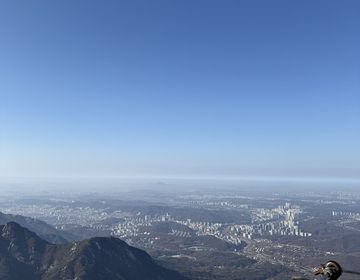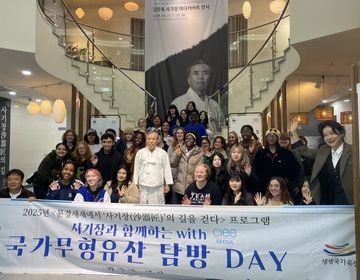CIEE Intercultural Communication and Leadership Course Guest Lecture: Self-Reflection
Contemplating my motivations for studying abroad in Korea, I have come to realize the primary factor was not my love for k-pop or k-dramas, nor was it to develop my language skills. These were important to me, but not as much as the possibility that I would be able to push myself and develop personal and professional skills which would enrich my life and career. It follows that I was very inspired by the guest lecture in my CIEE course on October 26, as our three guests Paul, William and James gave our class valuable information and inspiration for our future careers. It is always the case that after events like this I feel more prepared and eager to pursue opportunities I once thought were impossible. I wanted to highlight some of the lessons I took away from their experiences in Korea and abroad, despite their stories taking as far back as 50 years ago.
I was impressed by each of the three’s career paths: what organizations they worked for, what level of education they attained, and how they made crucial, life changing decisions. Paul worked in Peace Corp (as William and James did as well), but also applied for grants before attaining a masters and doctorate in the US. His insight on how he got paid throughout this process, including how to attain and search for grants after you get your feet on the ground, was info I needed to hear. William did something rather drastic in his career, and went back to normal life and subsequently law school after working with Peace Corp. He decided on law school as a way to address government reform and democracy globally after witnessing the Gwangju Uprising firsthand. From their stories I learned success doesn’t have to look one way or take a specified direction, but rather, one’s flexibility, intuition and vision are your primary compass for finding your way.
All three of our guest speakers worked in Peace Corp in South Korea before the region was dropped for eligibility because of its economic and social wellbeing. I myself have thought about Peace Corp, but thought it wasn’t exactly for me. James himself was the regional director in Korea for the organization. I will keep giving it thought, especially since it appears to open doors for people, and also look good on people’s resumes. Even beyond that, it’s an opportunity to build self-confidence and cleverness. However, I may be able to acquire a similar experience through other organizations like the Korea Foundation and Fullbright. I intend to keep searching.
Paul and William both wrote books over the course of their careers after their experiences specifically from the Gwangju Uprising. I took their reasoning into account, and now could see myself writing some work of fiction or nonfiction as a means to affect change and prosperity globally, however that may look. Books are gateways to the world.
Finally, there was an overarching theme during the class of exactly what is needed in the world. I, for one, do not want my work to mean nothing and have no real impact. According to our guests, what the world needs now is more efficient systems and management cross nationally, cross culturally and across various fields. This is where interactions, trust and relationships play the most essential role in effecting change. And in striving to bring people together, no matter which sector of the economy or culture that takes place, one must maintain a focus on the objective. The end goal is what matters, not what looks good to employers or sounds good to your friends. Many tend to romanticize their purpose overseas, and can dissolve from the main goal.
I am so happy that CIEE brought such guests for us to learn from. I for one derived many important life lessons from their stories. This has definitely been a highlight for the semester.
Related Posts

Soul Searching in Seoul: Everything I Learned and What I Wish I Knew
Before I start crafting my “study abroad changed me” answers for friends and family, here are the practical things I wish I’d known. The things that would’ve saved me time... keep reading

A Seoul Escape to Bukhansan
Get out of the hustle and bustle of Seoul and head to the peak of Bukhansan!

My Time in South Korea Attending Yonsei University: A Life-Changing Chapter
By: Zahrraa Al-Salman Studying abroad had always been a dream of mine—an opportunity to step outside of my comfort zone, immerse myself in a new culture, and deepen my understanding... keep reading
